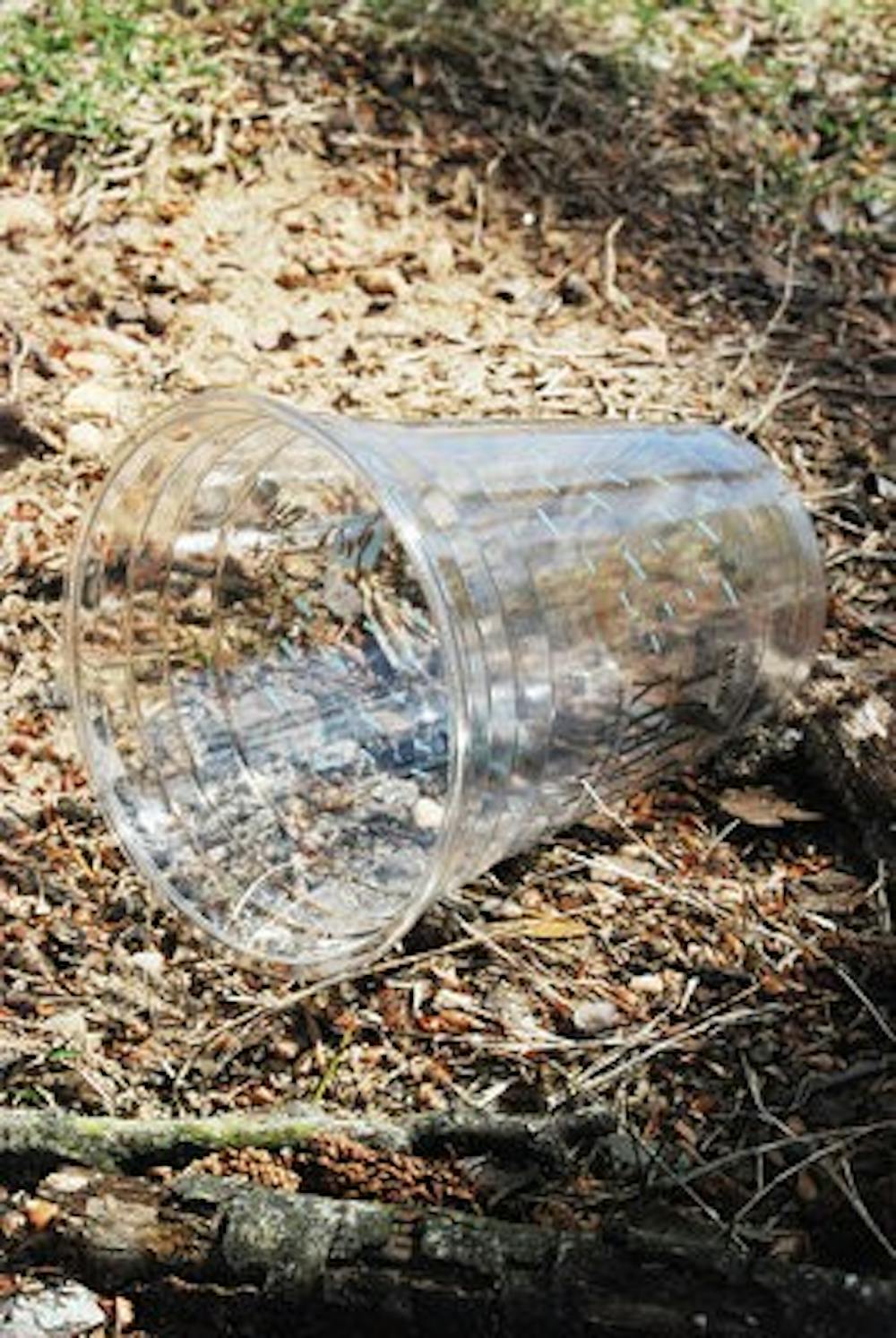Trash has been getting stuck in Parkerson Mill Creek for years.
The creek is listed as an impaired waterway by the Environmental Protection Agency and any amount of unnatural debris, party-related trash or otherwise, can severely hinder the creek's flow, leading to the growth of harmful bacteria.
"There's been a significant increase in litter on campus, mostly around the Greek Life houses," said Michael Freeman, environmental health and safety technician with the Office of Risk Management. "The highest concentration of that litter is coming from the weekend parties, and when you have wind and rain come through all those items end up in the creeks and in the waterways. They clog up the storm drains and the sewer system."
Freeman said although Auburn is no stranger to occasional on-campus debris, especially during football season, the quantity and severity of trash remaining on fraternity properties after the weekend has gotten out of hand,.
Auburn's fraternities occupy a position on campus where they lease their properties from the University and use different waste disposal companies, making them solely responsible for house upkeep and properly disposing of their waste.
"In the past, they may have had some pledges out there picking it up after events, but for whatever reason it doesn't seem to be happening as often," Freeman said. "Once you get some wind rolling through all that stuff ends up blowing down the road or blowing over eventually into the creek itself."
In the past, the University has worked with fraternities to provide a suitable place to dispose of homecoming floats and large trash items, a practice that the University plans on upholding in the future.
"(The trash) is something we definitely need to watch out for," said Austin Perry, sophomore in civil engineering and member of the Phi Delta Theta fraternity. "If we're responsible, it's our job to take care of it."
Freeman said cleanups of the creek led by the facilities department and graduate students have regularly turned up a large amount of broken glass and garbage.
Bottles, cans, cardboard boxes and other non-biodegradable trash can block water flow through the creek, while pet droppings, fertilizer and other debris can lead to algae blooms and harmful bacteria.
Freeman pointed to a 2012 case where Aimee Copeland, student at the University of Georgia, contracted nectrotizing fascilitis in the Little Tallapoosa River after falling in the water with an open wound.
A rare, but deadly bacteria infection, the disease forced doctors to amputate one of Copeland's legs and left her using a ventilator to breathe.
Freeman said although the creek is not in immediate danger, its weak flow and proximity to campus make contamination risks a high priority.
"A lot of what I would say about the fraternities is more observational as opposed to working firsthand with them," said Donny Addison, manager for recycling and waste reduction for building services.
Addison said a solution to the problem could come through the cooperation of fraternities and the University.
There's an interest on the fraternities end to join the University's contract for dumpster services, potentially cutting costs for both parties.
"It's the fraternities responsibility for them to pick up any loose debris around their property," Addison said.
Do you like this story? The Plainsman doesn't accept money from tuition or student fees, and we don't charge a subscription fee. But you can donate to support The Plainsman.





